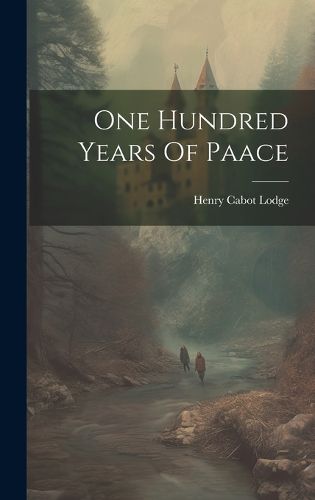Readings Newsletter
Become a Readings Member to make your shopping experience even easier.
Sign in or sign up for free!
You’re not far away from qualifying for FREE standard shipping within Australia
You’ve qualified for FREE standard shipping within Australia
The cart is loading…






Published in 1913, this book by Henry Cabot Lodge examines the history of peace in Europe from the Congress of Vienna in 1815 to the outbreak of World War I in 1914. Lodge, a prominent American statesman and historian, argues that the balance of power system established by the Congress of Vienna helped to maintain peace in Europe for nearly a century. He also discusses the factors that led to the breakdown of this system and the outbreak of war in 1914.
This work has been selected by scholars as being culturally important, and is part of the knowledge base of civilization as we know it.
This work is in the "public domain in the United States of America, and possibly other nations. Within the United States, you may freely copy and distribute this work, as no entity (individual or corporate) has a copyright on the body of the work.
Scholars believe, and we concur, that this work is important enough to be preserved, reproduced, and made generally available to the public. We appreciate your support of the preservation process, and thank you for being an important part of keeping this knowledge alive and relevant.
$9.00 standard shipping within Australia
FREE standard shipping within Australia for orders over $100.00
Express & International shipping calculated at checkout
Published in 1913, this book by Henry Cabot Lodge examines the history of peace in Europe from the Congress of Vienna in 1815 to the outbreak of World War I in 1914. Lodge, a prominent American statesman and historian, argues that the balance of power system established by the Congress of Vienna helped to maintain peace in Europe for nearly a century. He also discusses the factors that led to the breakdown of this system and the outbreak of war in 1914.
This work has been selected by scholars as being culturally important, and is part of the knowledge base of civilization as we know it.
This work is in the "public domain in the United States of America, and possibly other nations. Within the United States, you may freely copy and distribute this work, as no entity (individual or corporate) has a copyright on the body of the work.
Scholars believe, and we concur, that this work is important enough to be preserved, reproduced, and made generally available to the public. We appreciate your support of the preservation process, and thank you for being an important part of keeping this knowledge alive and relevant.